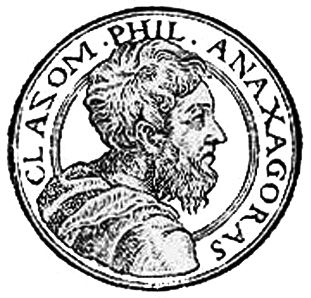Frag. B 1, quoted in John Burnet's Early Greek Philosophy, (1920), Chapter 6.
Famous Anaxagoras Quotes
“The sun provides the moon with its brightness.”
Fragment in Plutarch De facie in orbe lunae, 929b, as quoted in The Riverside Dictionary of Biography (2005), p. 23
quoted in Heinrich Ritter, Tr. from German by Alexander James William Morrison, The History of Ancient Philosophy, Vol.1 http://books.google.com/books?id=pUgXAQAAMAAJ&pg=PA284 (1838)
Frag. B 17, quoted in John Burnet's Early Greek Philosophy, (1920), Chapter 6.
Frag. B 4, quoted in John Burnet's Early Greek Philosophy, (1920), Chapter 6.
“Mind is infinite and self-ruled, and is mixed with nothing, but is alone itself by itself.”
Frag. B 12, quoted in John Burnet's Early Greek Philosophy, (1920), Chapter 6.
Frag. B12, in Jonathan Barnes, Early Greek Philosophy (1984), p. 190.
